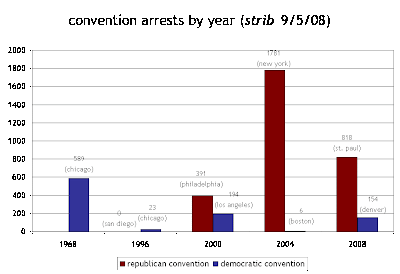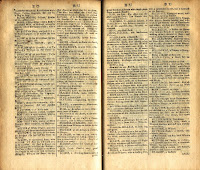corrections costs are bringing minnesota county commissioners to revolt. as both the strib and pioneer press report, counties are now shouldering an increasing share of the costs of incarcerating short-term inmates. it may seem like a wonky issue but any cost shift from the state to local counties is a potential budget-buster in these times. from the strib:
As more than 100 county commissioners from across Minnesota stood on the steps of the State Capitol, Gov. Tim Pawlenty and state legislators came under heavy criticism Thursday for forcing counties to pay the increasing cost of housing short-term offenders. The rally came as the Association of Minnesota Counties complained that requiring counties to take certain state prisoners — the result of a 2003 deal to balance the state budget — has led to rising numbers of inmates in county jails and dwindling reimbursements from the state to pay for housing them.
and the pi press:
“It’s nothing more than an old-fashioned shell game, where the money is sliding back and forth,” Stearns County Sheriff John Sanner said. “But nobody is fooled here, nobody at all.” The daily reimbursement is expected to drop from $27.24 this year to $9 next year, while the actual daily cost of jailing a short-term state offender ranges from $55 to more than $100, depending on the facility and transportation costs. Those figures don’t include medical costs.
House Majority Leader Tony Sertich, DFL-Chisholm, blamed the Republican governor for the cost shift. Democrats have long fingered Pawlenty’s efforts to hold down state taxes as the culprit for rising local property taxes. County officials said jail costs are fixed and they might have to cut other services to keep up.
yeesh. the association’s presser puts the issue more succinctly:









